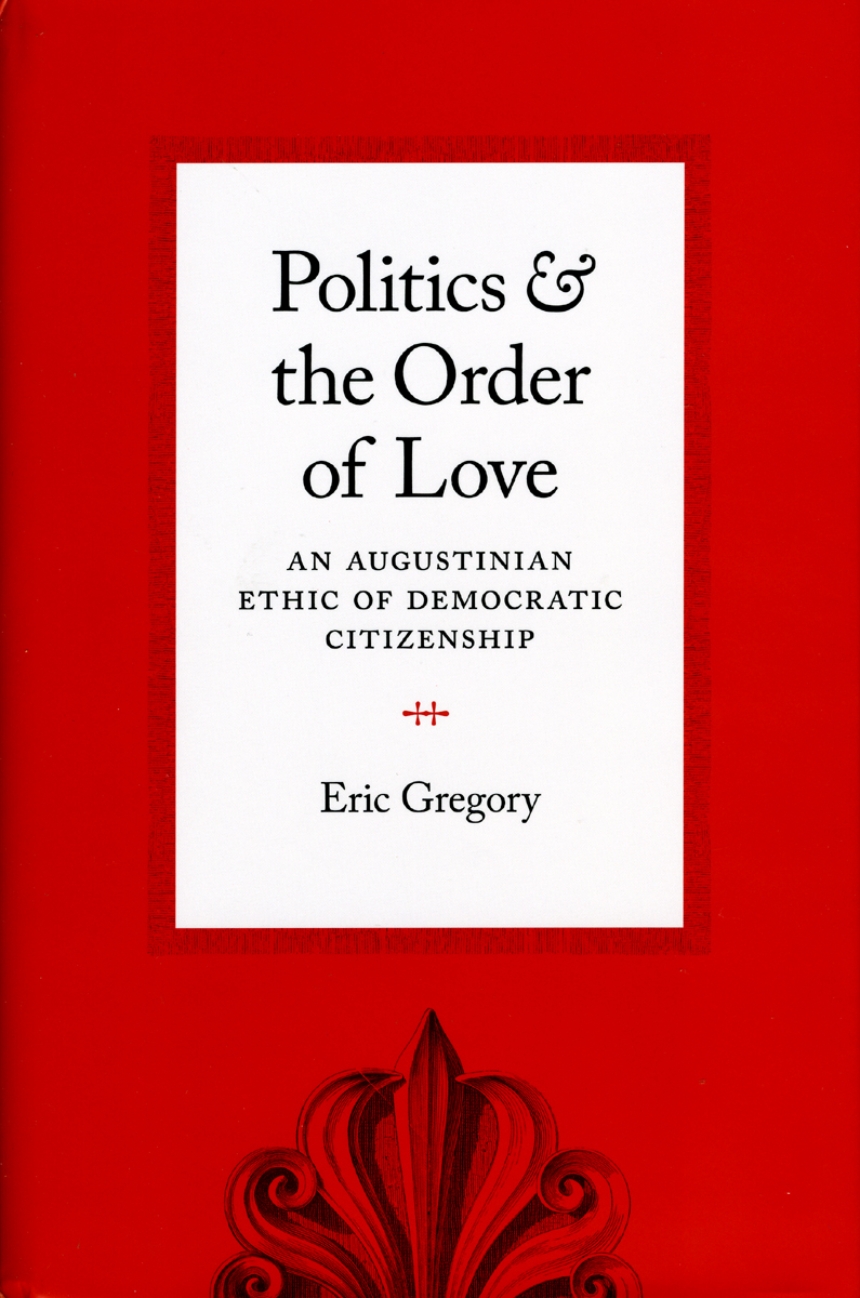Politics and the Order of Love
An Augustinian Ethic of Democratic Citizenship
Politics and the Order of Love
An Augustinian Ethic of Democratic Citizenship
Gregory examines a broad range of Augustine’s texts and their reception in different disciplines and identifies two classical themes which have analogues in secular political theory: love—and related notions of care, solidarity, and sympathy—and sin—as well as related notions of cruelty, evil, and narrow self-interest. From an Augustinian point of view, Gregory argues, love and sin constrain each other in ways that yield a distinctive vision of the limits and possibilities of politics.
In providing a constructive argument for Christian participation in liberal democratic societies, Gregory advances efforts to revive a political theology in which love’s relation to justice is prominent. Politics and the Order of Love will provoke new conversations for those interested in Christian ethics, moral psychology, and the role of religion in a liberal society.
434 pages | 6 x 9 | © 2008
Philosophy: Ethics, Philosophy of Religion
Political Science: Political and Social Theory
Religion: Christianity, Philosophy of Religion, Theology, and Ethics
Reviews
Table of Contents
Acknowledgments
Abbreviations
Introduction:Augustine and Modern Liberalism
Chapter 1: Beyond Public Reason: Love, Sin, and Augustinian Civic Virtue
Chapter 2: From Vice to Virtue: The Development of Augustinian Liberalism
Chapter 3: A Liberal Ethic of Care: Feminist Political Theory
and Christian Social Ethic
Chapter 4: Love as Political Vice: Hannah Arendt’s Augustine
Chapter 5: Love as Political Virtue: “Stoics” and the Problem of Passion
Chapter 6: Love as Political Virtue: “Platonists” and the Problem of God
Conclusion: Remembering Augustine: The Exhausted Politics of Pessimism,
Skepticism, and Nostalgia
Bibliography
Index